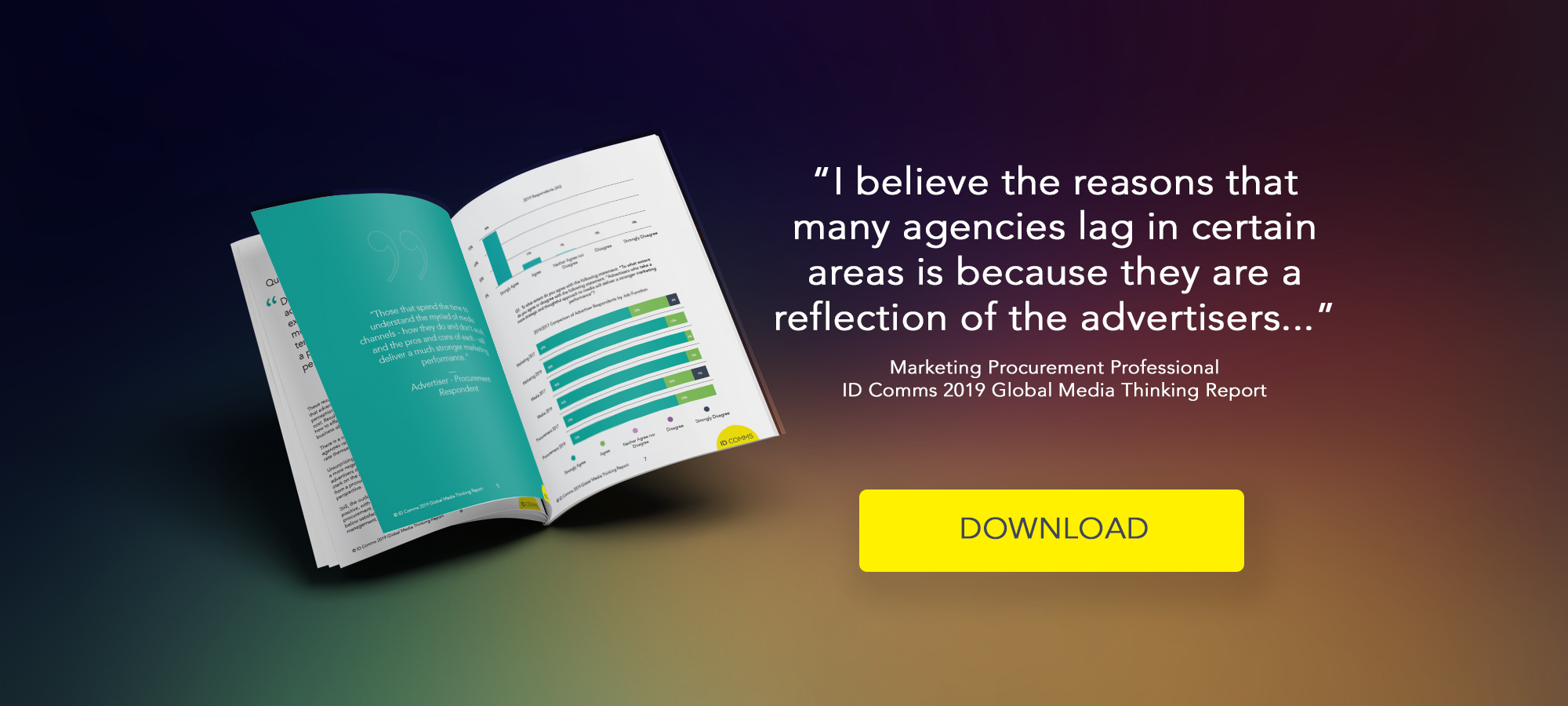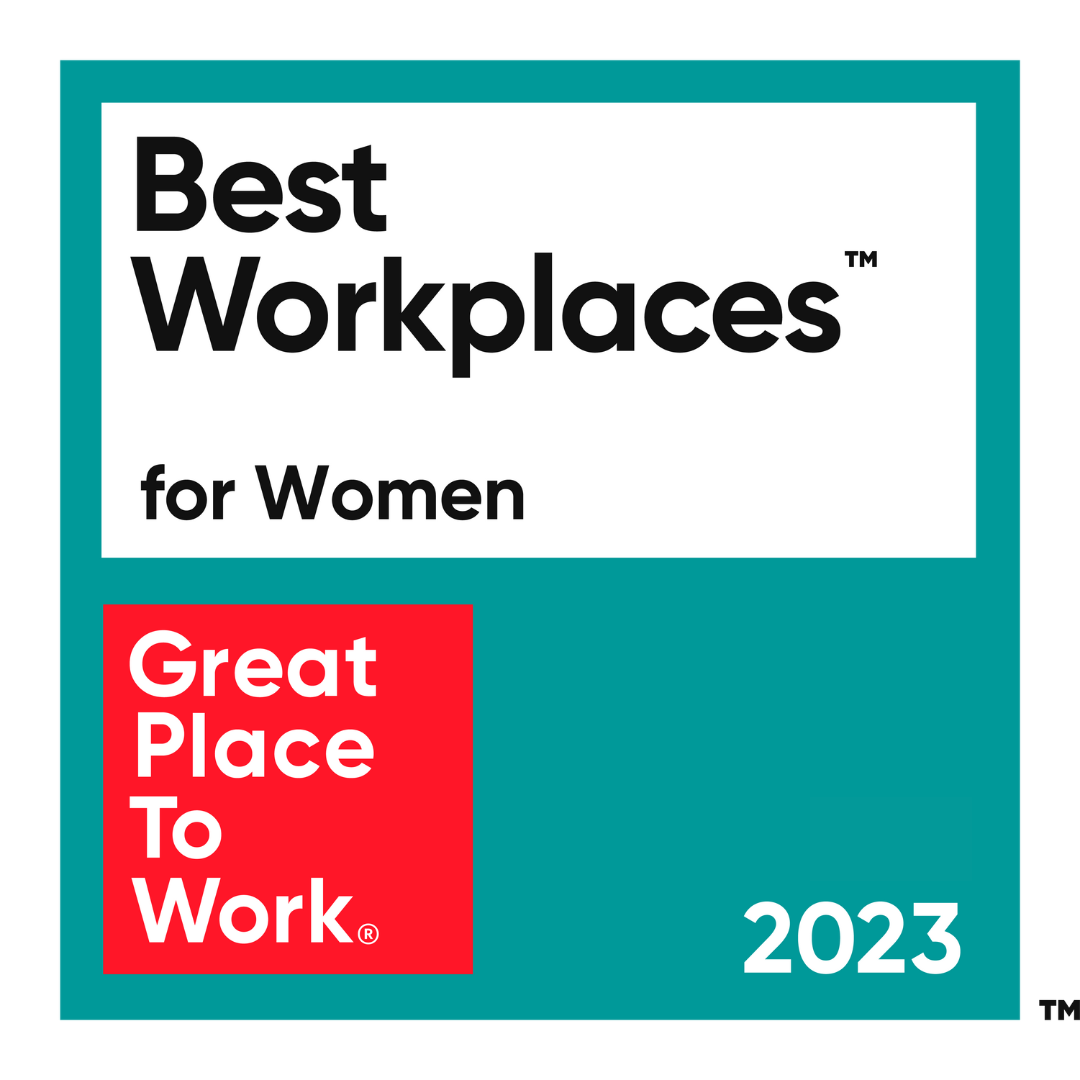But procurement takes more of a shine to media.
Media and marketing professionals have a lower opinion of media and media agencies than they did two years ago, according to new research from ID Comms.
They are more likely to view media as a cost to the business and a complex headache, rather than an investment for growth and an exciting opportunity. They are also more likely to view their agency as a commodity supplier instead of a strategic partner.
Those with the most exposure to media agencies – media professionals – are also likely to have the lowest opinion of agency expertise.
On a scale of 1 to 5 (where 1 is unacceptable, 3 meets expectations and 5 is outstanding), agencies were rated below average by media professionals on key competencies such as identifying relevant data-fuelled insight (2.45), providing neutral and objective planning recommendations (2.35), and integrating owned, earned and paid media (2.12).
This compares with higher scores of 2.50, 2.50 and 2.31 respectively in 2017, when the ID Comms Global Media Thinking Survey was last conducted.
Better news from the 2019 Survey is that procurement attitudes to media are improving. Procurement professionals were more likely than to see media as an exciting opportunity and an investment for growth than two years ago, and also provided the highest average scores for media thinking from agencies (2.97 out of 5, up from 2.77 in 2017). This compares with this year’s average scores of 2.68 and 2.49 for marketing and media professionals respectively.
The results are based on responses from 177 Marketing, Media, and Procurement professionals with a range of global, regional and local market responsibilities across a diverse spectrum of categories. Together they represent a combined global media investment in excess of $20bn. All major agency holding groups and some independent media agencies also participated in this research.
The ID Comms Global Media Thinking Report 2019 also highlights that all is not well with advertiser media strategy. Client-side marketing, media and procurement professionals all rate themselves below satisfactory in almost all areas of media management (with an average score of 2.56 out of 5) and remain unclear on how to set clear KPIs for media (2.55 out of 5).
None of these scores demonstrate any significant improvement on the 2017 report, although advertisers have not been helped by the fact that media has arguably grown more complex in that time.
Agencies also suffer from poor ratings from advertisers across several areas of media expertise. They received the worst ratings for their ability to provide neutral and objective planning recommendations (2.43 out of 5), suggesting that trust remains a key obstacle. Even in the area where they were rated most highly – thought leadership – they were still deemed to be just below satisfactory (2.93).
Again there has been no significant improvement since the 2017 report, when agencies fell similarly short of expectations across all core competencies.
“At a time when the challenge of media has never been greater, it is disappointing to see that so many marketing and media professionals are struggling to implement media strategies or forge relationships that deliver long-term growth. What is positive is that we are seeking changing attitudes in procurement and we could be witnessing the emergence of a new kind of procurement leader, one for whom cost reduction is just one part of a larger set of objectives around driving innovation, ROI and business development,” said Paul Stringer, Consultant at ID Comms.
About the ID Comms Media Thinking Report 2019:
ID Comms conducted this research between 5th June and 1st July 2019, and received 177 responses.
The respondents were comprised of Marketing, Media, and Procurement professionals with a range of global, regional and local market responsibilities. 57% were Europe-based, 28% were from North America, with the remaining participants coming from Middle East & Africa, Asia Pacific, Australia and New Zealand, and Latin America. Media, Marketing, and Procurement respondents to this survey represent a wide variety of brands in diverse categories including FMCG/CPG, retail, pharmaceutical, food and drink, entertainment, automotive, luxury, finance, energy, and telecommunications, with a combined global media investment in excess of $20bn.
All major agency holding groups and some independent media agencies are represented by the participants of this survey.






COMMENTS